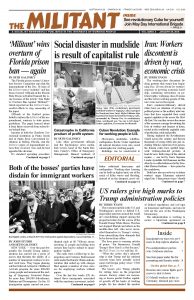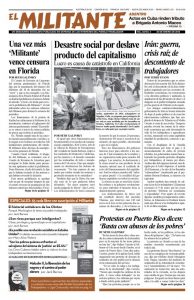The U.S. State Department announced Jan. 10 that it had downgraded its warning on travel to Cuba by U.S. citizens. After alleging last September that its diplomats in Havana had been the victims of mysterious covert “sonic attacks,” the U.S. government slashed its embassy personnel in half, ordered the expulsion of 15 Cuban officials from the Cuban Embassy in Washington, D.C. and issued a “do not travel” advisory for those planning to visit the island. Now they just say you might “reconsider” going.
The travel advisory had little impact on trips to Cuba. Josefina Vidal, head of U.S. Affairs for the Cuban Foreign Ministry, reported in early January that the number of U.S. travelers visiting the island doubled in 2017 — more than 1.1 million compared to just under 620,000 the year before. A record 4.7 million people visited from all over the world.
The State Department says 24 embassy personnel had suffered symptoms including “ear complaints, hearing loss, dizziness, headache, fatigue, cognitive issues and difficulty sleeping.” There’s just one problem with their description of the mystery attacks. No weapon exists that could covertly cause the symptoms described, except possibly in science fiction books.
On Jan. 4, after four trips to Havana under a special agreement with the Cuban government, the FBI’s Operational Technology Division issued a report they had no evidence that sound waves could have damaged the diplomat’s health. The announcement was widely covered in the U.S. press.
Less than a week later the State Department muted the travel warning. The Associated Press reports U.S. officials have stopped referring to the incidents as “sonic attacks.”
The biggest impact of Washington’s measures is on Cubans wishing to move to or visit the United States. Under a 1994 agreement, the U.S. government was supposed to grant visas to at least 20,000 Cubans a year. With the U.S. Embassy down to just “emergency personnel,” Washington closed the visa office and said Cubans would have to get to Colombia to apply at the U.S. Embassy there.
“Cuba is a safe, peaceful and healthy country for Cubans, for foreigners, for accredited diplomats and for the millions of people who visit us every year, including those from the U.S.,” Vidal said Jan. 9.

